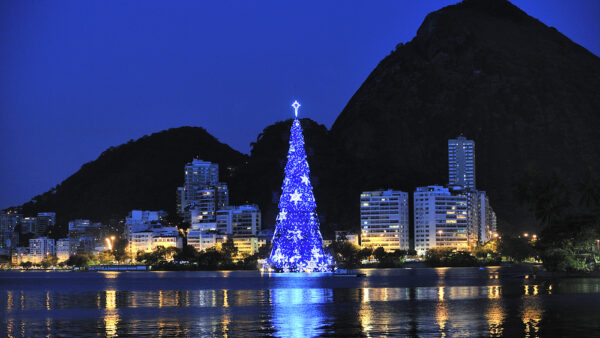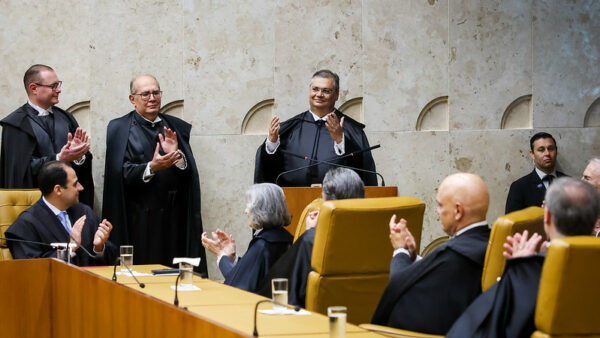Brazil, as with Portugal and seven other countries spread through Africa and Asia, has Portuguese as its official tongue. However, our language is by no means the same as that of our colonizers. Although differences are mainly observed in pronunciation, the structure of the Portuguese language evolved differently in Brazil than it did in Portugal.
These differences are marked enough that many linguists defend Brazilian Portuguese as a language of its own. “The struggle for the recognition of our linguistic autonomy is, above all, a political issue,” says Marcos Bagno, a linguist of the University of Brasília. “The Brazilian way of speaking and writing remains to be seen as a ‘deviation’ or a ‘misuse’ of proper Portuguese. While they are similar, they are by no means the same.”
When contemplating the discrepancies between language use in Brazil and Portugal, it might be more accurate to compare it to the relationship between the French of France and French of Quebec, rather than U.S. and UK English.
African influences
Indigenous and African languages had an enormous influence on the development of Brazilian Portuguese. When Brazil gained its independence from Portugal in 1822, 1.5 million of Brazil’s 3.5 million people were slaves of African descent. Today, roughly 3,000 Brazilian Portuguese words have African roots.
While there’s no doubt that African languages impacted our lexicon, their influence on grammar is heavily debated. Many linguists have downplayed these languages’ impact over the years, despite contradictory research.
In a 2014 article, scholars Juanito Avelar and Charlotte Galves, from the University of Campinas, have analyzed such influences. They identified present-day traces of indigenous African languages in Brazil – something that also occurs in African Portuguese-speaking countries, such as Angola or Mozambique, but not in Portugal.
Languages spoken by native Brazilian tribes have also made their mark. Several words and expressions have been incorporated into Brazilian Portuguese, although colonization decimated most native languages. Brazilian linguists estimate that around 1,200 Brazilian native languages have disappeared since the arrival of the Portuguese in 1500.
Moreover, 87 percent of indigenous languages in Brazil risk disappearing in upcoming decades due to their lack of speakers. These languages are spoken by groups of fewer than 10,000 people each.
The Amazonian General Language
Though Portuguese is Brazil’s official language and is widely spoken by nearly the entire population, this was by no means always the case. The language of the Portuguese colonizers was only established as the colony’s official tongue in 1758 – over 250 years after the first settlers had arrived on our shores.
Until the 18th century, the most-widely spoken language in our country was actually indigenous. The “general language,” or Nheengatu, was a supra-ethnic language of the Tupi-Guarani family and spoken by both whites and blacks.
There were two variations of this “general language” during Colonial Brazil: one from the Amazon, and one from São Paulo. The latter disappeared during the 18th century – but not without leaving a profound mark on the Portuguese language spoken throughout the colony. Meanwhile, the Amazonian general language remained the most-widely spoken language in Northern Brazil until the rubber boom in the late 19th century.
Two factors contributed to the spread of the general language: the miscegenation between colonizers and indigenous populations, and the enslavement of many tribes. In São Paulo, tribes used to accept foreigners into their families by marrying them to a young woman of the tribe.
Between the 16th and the 18th century, Jesuit missionaries and Portuguese settlers staged a dispute over the control of indigenous populations. At first, the Jesuits fared better as they spoke the general language. Over time, though, the Portuguese realized that learning the local supra-ethnic language would give them the upper hand.
The Portuguese Crown itself began encouraging the spread of the general language. In 1689, it decided that the Jesuits would teach Nheengatu not only to indigenous peoples, but also to the sons of the settlers.
With time, however, the predominance of the Nheengatu came to be seen as a nuisance. Representatives of the crown in the colony were forced to rely on translators, which created hurdles for managing their territories. To make matters worse, the general language was linked to the Jesuits, and their relationship with the Crown began to sour. In 1759, the missionaries were expelled from the colonies, and the use of any branch of the Tupi-Guarani language family was strictly forbidden.
The general language is still spoken in parts of the Amazon by roughly 30,000 people of indigenous descent. A handful of cities have declared the Nheengatu an official language, and scholars at the University of São Paulo still teach it – and are fighting to help spread it among tribes, reaffirming their native origins.[/restricted]









 Search
Search






































